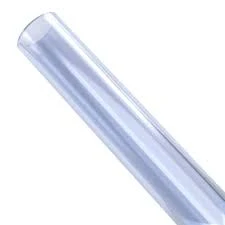Dec . 25, 2024 10:55 Back to list
Comprehensive Guide to Industrial Pipe Fittings for Efficient Plumbing Solutions
The Importance of Industrial Pipe Fittings in Modern Infrastructure
In today’s complex industrial landscape, the significance of pipe fittings cannot be overstated. These crucial components play a vital role in the transportation of fluids and gases, ensuring a seamless flow within various systems. From manufacturing plants to commercial buildings, industrial pipe fittings are essential for efficient operations and infrastructure reliability.
Understanding Industrial Pipe Fittings
Industrial pipe fittings are components used to connect, terminate, control flow, and change the direction of piping in various systems. They are available in a wide variety of shapes, sizes, and materials, including steel, copper, plastic, and more. The choice of material often depends on the specific requirements of the application, such as temperature, pressure, and the nature of the fluid being transported.
Common types of pipe fittings include
- Elbows These are used to change the direction of the pipes, typically at 45 or 90 degrees. - Tees A tee fitting allows for the branching of a pipeline. It features one outlet that is perpendicular to the two parallel inlet pipes. - Couplings These connect two pipes together in a straight line, often used for extending the length of a piping system. - Reducers Used to connect two pipes of different diameters, allowing for a change in pipe size without interrupting the flow. - Caps and plugs These fittings are used to close off the end of a pipe to prevent leaks or debris from entering the piping system.
The Role of Pipe Fittings in Different Industries
Various industries rely on pipe fittings to ensure the efficient operation of their systems. For instance, in the oil and gas sector, fittings are critical for pipeline construction, enabling the safe transportation of crude oil and natural gas from extraction sites to refineries. In this context, the need for durable and reliable fittings is paramount due to the high pressures and corrosive substances involved.
In the manufacturing industry, pipe fittings are equally essential. They are crucial in processes involving water, steam, and other fluids used in production. Properly installed and fitted piping systems can significantly enhance productivity through efficient resource management and reduced downtime.
industrial pipe fittings

The construction sector also employs industrial pipe fittings extensively. Whether for plumbing systems in residential and commercial builds or for HVAC installations, the proper selection of pipe fittings is vital for ensuring the effective distribution of water, heating, and cooling throughout a structure.
Quality and Standards
The quality of pipe fittings is crucial to the safety and reliability of any industrial operation. Different industries have established standards to ensure that the fittings used meet specific performance criteria. For instance, organizations like the American National Standards Institute (ANSI) and the International Organization for Standardization (ISO) provide guidelines that manufacturers must adhere to.
Using high-quality fittings can prevent catastrophic failures, such as leaks or ruptures, which can lead to costly repairs and potential hazards. Regular inspections and maintenance of piping systems, including fittings, are essential to ensure operational integrity and extend the lifespan of the infrastructure.
Choosing the Right Pipe Fitting
Selecting the appropriate pipe fittings for a specific application requires careful consideration. Factors such as the type of fluid being transported, the operating pressure and temperature, and the environment must all be evaluated. Consulting with engineers and industry professionals can help ensure that the right decisions are made, avoiding potential failures down the line.
In addition, advancements in technology have introduced innovative materials and techniques in the manufacturing of pipe fittings. For instance, the development of corrosion-resistant alloys and specialized plastic fittings has expanded the options available, allowing for solutions tailored to unique challenges faced by different industries.
Conclusion
In conclusion, industrial pipe fittings are integral to the functionality and efficiency of various systems across multiple sectors. Their role in facilitating the safe and effective flow of fluids cannot be overlooked. As industries continue to evolve and face new challenges, the importance of high-quality, reliable pipe fittings will only increase. For companies invested in maintaining robust infrastructure and operational excellence, understanding and selecting the right fittings is essential. Engaging with experts and staying informed about material advancements and standards can lead to improved outcomes and sustainability in industrial operations.
-
Durable PP Rigid Sheet: Lightweight, Chemical Resistant Solutions
NewsAug.21,2025
-
PVC Grey Sheet for Extraction: Chemical Resistant & Durable
NewsAug.19,2025
-
Durable PVC Pipe Fittings for Plumbing & Irrigation Needs
NewsAug.18,2025
-
HDPE Steel Belt Reinforced Spiral Corrugated Pipe | High Strength
NewsAug.17,2025
-
HDPE Pipe Fittings: Durable, Leak-Proof Solutions
NewsAug.16,2025
-
Premium CPVC Sheet: High-Temp & Chemical Resistant Solutions
NewsAug.15,2025

